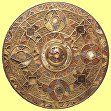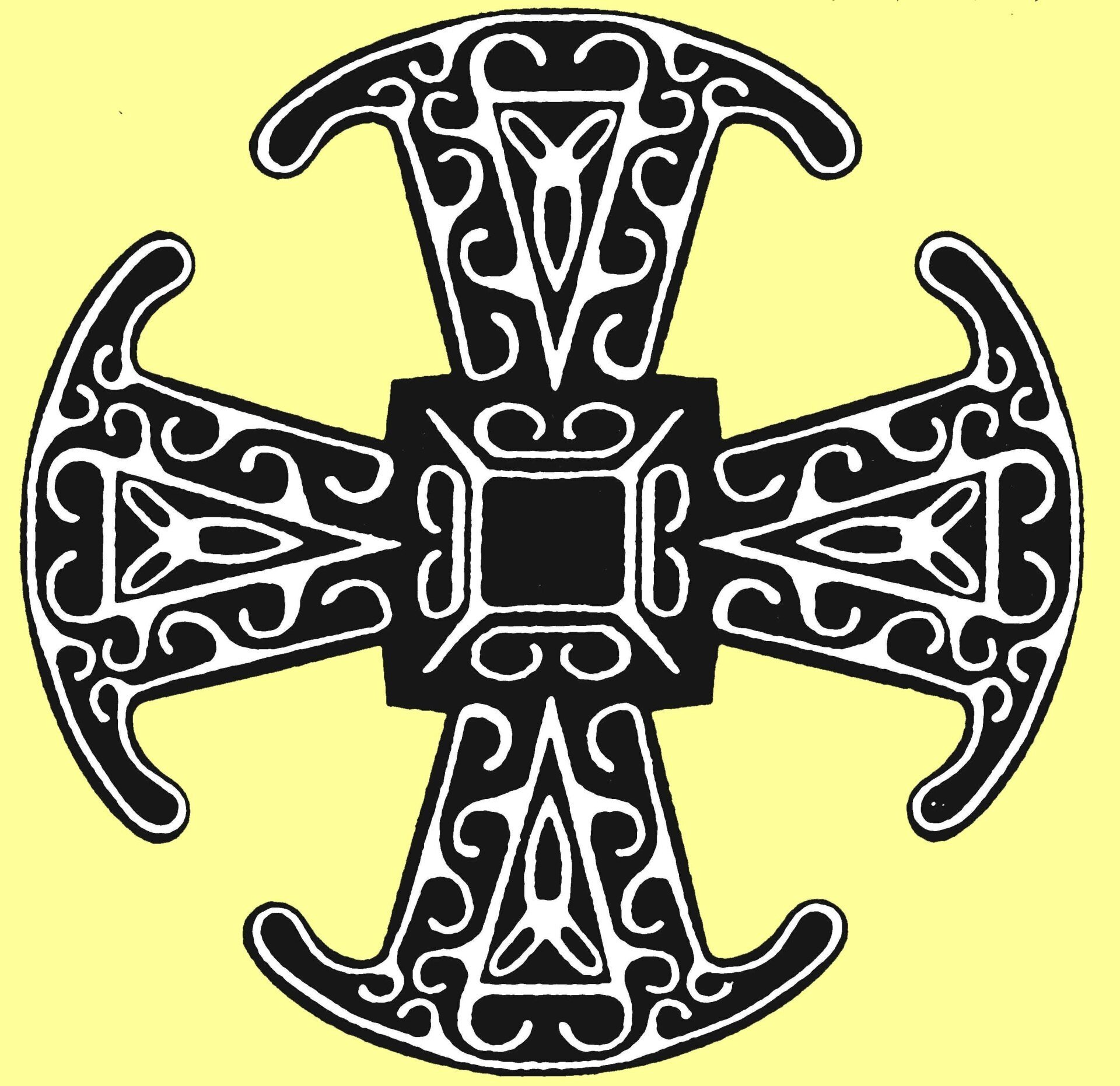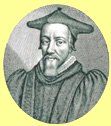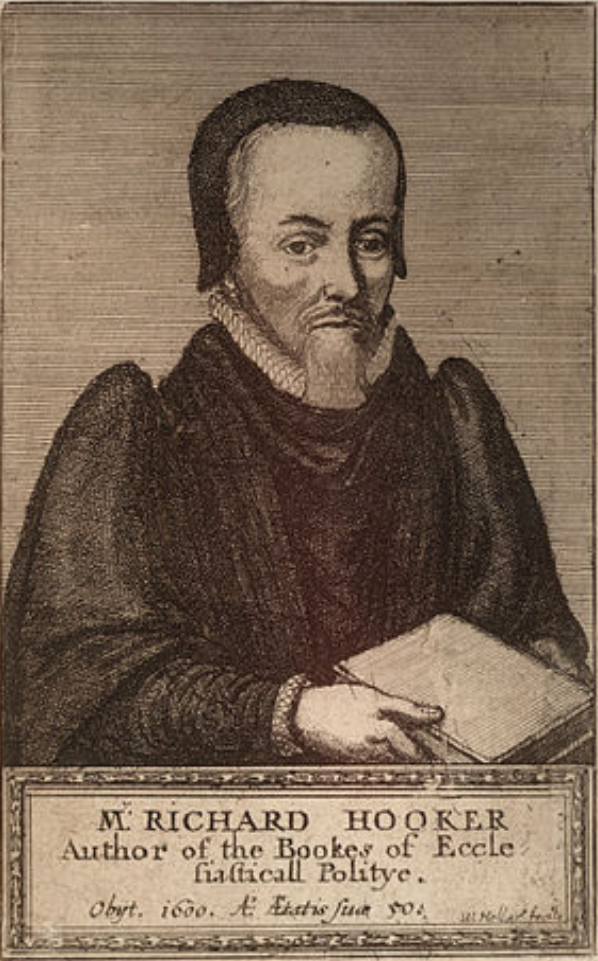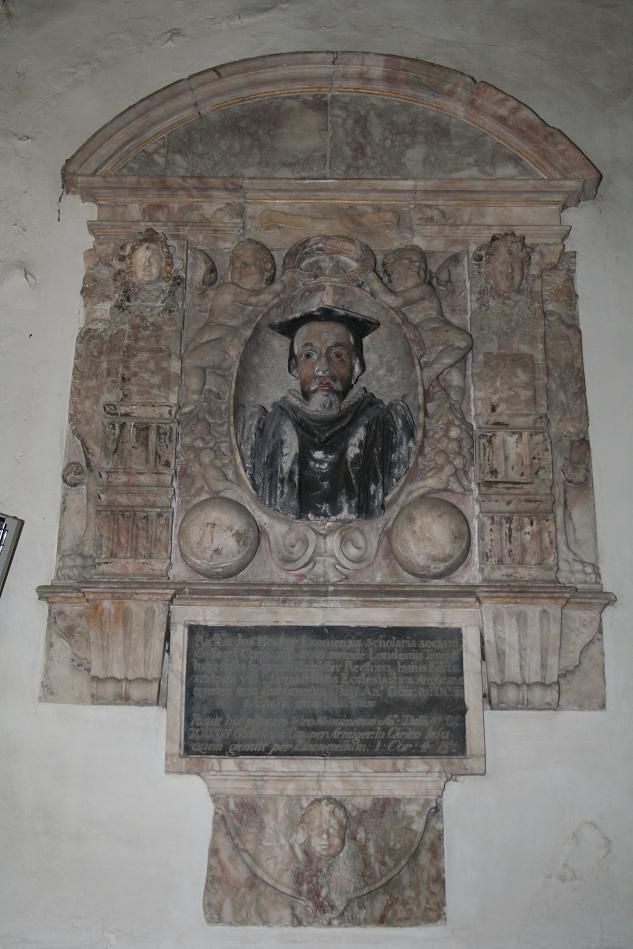Richard Hooker
Richard Hooker (March 1554 – 3 November 1600) was an Anglican priest and an influential theologian. Hooker's emphases on reason, tolerance and the value of tradition came to exert a lasting influence on the development of the Church of England, spending the last 5 years of his life at Bishopsbourne, during which he was also incumbent of Barham.
It was during this time that he wrote the fifth volume, the last completed, of his great work "The Laws of Ecclesiastical Polity".
He was described by a contemporary writer as "...an obscure harmless man in poor clothes...of a mean stature, stooping, yet more lowly in the thoughts of his soul; his body worn out, not with age, but with study and holy mortification."
In 1595, Hooker became Rector of the parishes of St. Mary the Virgin in Bishopsbourne and St. John the Baptist Barham in Kent and left London to continue his writing. He published the fifth book of "Of the Laws" in 1597. It is longer than the first four taken together. Together they were: -
- Scripture alone is the rule of all things which may be done by men
- Scripture prescribes an unalterable form of Church government
- The English Church is corrupted by popish orders, rites etc
- The law is corrupt in not allowing lay elders
- There ought not to be in the Church Bishops
He died 3 November 1600 at his Rectory Bishopsbourne and was buried in the chancel of the church being survived by his wife and four daughters. His will includes the following provision: "Item, I give and bequeth three pounds of lawful English money towards the building and making of a newer and sufficient pulpit in the parish of Bishopsbourne." The pulpit can still be seen in Bishopsbourne church, along with a statue of him.
King James I is quoted by Izaak Walton, Hooker's biographer, as saying, "I observe there is in Mr. Hooker no affected language; but a grave, comprehensive, clear manifestation of reason, and that backed with the authority of the Scriptures, the fathers and schoolmen, and with all law both sacred and civil." Hooker's emphasis on Scripture, reason, and tradition considerably influenced the development of Anglicanism, as well as many political philosophers, including John Locke. Locke quotes Hooker numerous times in the Second Treatise of Civil Government. In the Church of England he is celebrated with a Lesser Festival on 3 November; the same day is also a Lesser Feast in his honour in the Episcopal calendar of saints.
